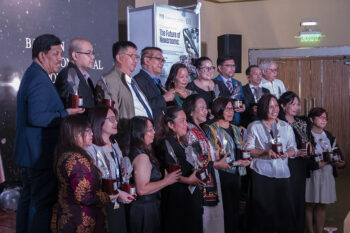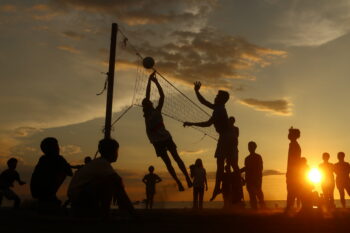
OZAMIZ CITY (Mindanews / 24 January) — By now, everyone who follows Philippine current events closely knows of the recent unilateral abrogation by Defense Secretary Delfin Lorenzana of the 1989 DND-UP Accord, also referred to as the Ramos-Abueva 1989 agreement, after its main signatories, then Department of National Defense (DND) Secretary Fidel Ramos and then University of the Philippines (UP) President Jose Abueva.
Mainstream news and social media are abuzz with this unheralded unilateral abrogation, coming in the form of a letter addressed by Lorenzana to UP President Danilo Concepcion. Not much fanfare, much less the courtesy of asking for an accounting of perceived faults of non-cooperation in specific cases, preceded the scrapping of the more than 30-year-old accord.
The 1989 DND-UP Accord principally provides that law enforcement authorities (whether AFP (Armed Forces of the Philippines), PC-INP (Philippine Constabulary-Integrated National Police, now Philippine National Police) or paramilitary (CAFGU) first give prior notice to the UP administration before conducting operations inside the UP campuses to ensure coordination and cooperation. It however, and rightly so, provides for exceptions: hot pursuit, or similar emergencies; or when police assistance is so requested by the UP administration itself. It had no termination or pre-termination clauses, and a follow-through or enhancement of its precursor the Soto-Enrile 1982 accord which was limited to the military, inked between Sonia Soto, a UP student leader, and Ponce-Enrile representing the DND. The 1989 accord served as a recog-nition of the students’ struggle against the Marcos dictatorship.
At the time of its unilateral abrogation – not mutually agreed upon be-tween the two contracting parties – the 1989 Ramos-Abueva accord had spanned the administrations of five Philippine presidents: Cory Aquino (until 1992) Fidel Ramos (1992-1998), Erap Estrada (1998 to January 2001), Gloria Arroyo (2001 to 2010) Noynoy Aquino (2010 to 2016) and even that of Rodrigo Duterte (since 2016), well into four and a half years of his incumbency or up to the moment Lorenzana let down the axe.
During that long period, nothing of dramatic or controversial occurrence requiring a review of its terms came up, with campus security or peace keeping functions ably provided by UP Police, and private security complement. If there was an intent on the part of the Duterte administration to review its terms, it was not made formal, seemingly made to percolate in the burners of the DND kitchen, awash with intelligence funds in the billions to quell insurgency.
The Lorenzana view, ipso facto also that of Duterte administration, ostensibly relied on an assumption that UP serves as a “shield” for CPP-NPA (Communist Party of the Philippines-New Peoples Army) recruitment or and as a “safe haven for the enemies of the state” merely because some 18 students allegedly killed in firefights with the military turned out to be former UP students. The evidence to back up these claims however is lacking, if not prime examples of fallacies in logic. That 18 NPAs were former students of UP, and thus a breeding ground for Red fighters is a hasty generalization. It cannot also support the conclusion that recruitment took place in UP, or that UP played an active and deliberate hand in that alleged recruitment, or allowed it free rein. Were it so possible, with the government administration having the goods on students and professors running afoul of the law, charges could have been filed in court and arrests made.
Nothing in the 1989 Ramos-Abueva accord nor in the 1982 Enrile-Soto accord prevents legal state actions. Plainly, Lorenzana’s pronouncements seeking to justify the abrogation has no basis in fact and in law. There was nothing there that could stand in court, hence, the non-action in context.
Were CPP-NPA recruitment really true, with proof, but without action of the DND a civilian office, that situation is a sure fit for corrupt and graft-imbued act, punishable under the dragnet clause found in Section 3 (e) of R.A. 3019, the Anti-Graft and Corrupt Practices Act, to wit:
Section 3. Corrupt practices of public officers. In addition to acts or omissions of public officers already penalized by existing law, the following shall constitute corrupt practices of any public officer and are hereby declared to be unlawful:
(e) Causing any undue injury to any party, including the Government, or giving any private party any unwarranted benefits, advantage or preference in the discharge of his official administrative or judicial functions through manifest partiality, evident bad faith or gross inexcusable negligence.
Plainly, Lorenzana, being a civilian officer of government, may be held liable: having proof yet not taking action through gross negligence on alleged CPP-NPA recruitment is culpable under this law.
Lorenzana is in zugzwang. If he has no proof, his abrogation of the Ramos-Abueva accord is based on nothing more than imagined fiction, still constitutive of manifest partiality or evident bad faith. Moreover, good faith cannot rest on imagination without proof, especially given one’s duties as a public officer. Even if he takes action now as his forced chosen remedy, his delay is still culpable as the DND-UP Accord does not in any way prevent or curtail state actions or stands in its way. In fact the DND-UP Accord states: (in paraphrase) nothing in this agreement shall be understood to curtail the laws of the land. Pleading the DND –UP Accord as bar to legitimate state law enforcement actions therefore won’t make the cut. It was no bar at all, plain and simple.
Adding more smoke to the errant fire, the spokesperson for the Philippine National Police assured that notwithstanding the scuttling of the UP-DND, crackdowns, arrests, and militarization in UP would not happen. If equipped with the goods, i.e., proof of CPP-NPA recruitment with the complicity if not direction of UP professors, appropriate criminal charges could already have been filed by DND and law enforcement agencies that were fed with the goods. And if no crackdowns or arrests were to happen, that exposes the purpose of the abrogation: the chilling effect of red-tagging, to shut the academe down for thinking differently from the current administration – inspire fear rather than understanding and respect. Critical thinking for which UP and other universities and colleges throughout the country are known to live by would become extinct. Instead of intelligent discourse from passionate, yet most times, concededly, noisy students, we stand to be treated to an irretrievably sad yet horrifying spectacle: ultra cooperative and dissent-free or dissent-immune students bereft of critical thinking, rendered as indistinguishable from students that have undergone lobotomies en masse.
Why UP? For one, it is a party to both the Soto-Enrile 1982 Accord and the DND-UP 1989 Accord. It is acknowledged as a crucible of leaders in Philippine society. Many past Philippine Presidents and high-ranking government officers hail from UP, and some are occupying various Cabinet posts then, and continuing up to now.
But UP is similar to struggling universities and colleges in the Philippines, especially in the 1980s. Since it is a human made institution, it also has its flaws, far from being special but helped along by successful alumni and joint ventures with the private business sector. A partner of Sycip Salazar, Atty. Rose Marie King Dominguez, herself a UP alumnus, wrote in playful Taglish in her FB account:
“Professors ran the gamut, from mediocre to brilliant to the undeniably absent. I enrolled in a Rizal course and saw neither hide nor hair ni Prof. May Spanish lecturer na braless, teacher na clueless. Your mentor could be a living legend of Philippine literature or an aging National athlete or a Latin scholar who would begin your Civil Law Review course with a two-hour summary of the history of Rome.”
Its reputation for activism, however, has been incomparable for a long time. The reason is academic freedom that is, to the point of being repetitive, free and unhampered. Free to question. Free to learn. Nothing is static in this world, and discoveries in all fields of human endeavor never cease so that no one idea remains constant, unchallenged, and remains unchanged forever. It is only through free exchange of ideas inherent in academic freedom upon which the progress of the human race rests. Deny that and you deny progress, and lapse into the dark ages again.
Academic freedom is nothing new. It has a long history. As shared by a former UP Diliman Chancellor Michael Tan, academic freedom commenced in the 12th century in the European universities set up by the Catholic Church, foremost of which was the University of Bologna that established a precedent, seeking protection of all “traveling scholars” from political or religious interference, as to allow them freedom of movement. A few years back nearly a hundred universities worldwide signed an agreement confirming their commitment to academic freedom. The University of the Philippines was the only signatory from the country.
I have both humility and pride to have walked the hallowed grounds of academic freedom that is UP. Without academic freedom that allows critical thinking there can be no UP. With the abrogation of the 1989 DND-UP accord, and academic freedom consequently under threat, UP and its inseparable companion academic freedom must perforce go back to the frontlines for peace and knowledge, regardless of the smell and sounds of war that hover over it.
UP Fight! You are an oblation through critical thinking, not a flower on the wall.
[MindaViews is the opinion section of MindaNews. Upper Right Hand is a revolving column of the Union of People’s Lawyers in Mindanao (UPLM). Atty. Virgilio Ponciano A. Ocaya is the Auditor of the UPLM. A member of the University of the Philippines (UP) Law Class of 1979 who passed the bar examination given in the same year, he went into private litigation practice in Manila before going back to his hometown in Misamis Occidental in 2014.]







